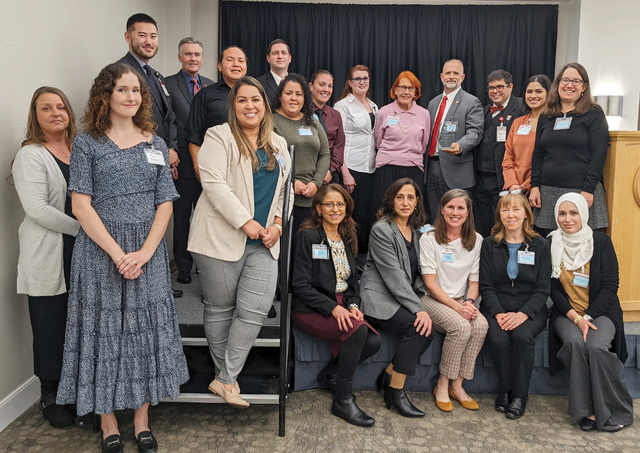Breadcrumb
Five years ago, Redwood Health Center knew it had an enormous challenge—and a big opportunity.
Many New American patients, who were once refugees, didn’t have health records from their former doctors. Some weren’t aware that appointments had to be scheduled in advance. Some didn’t show up to appointments at all. And providers didn’t understand why patients weren’t doing what was expected of them.
Many New Americans had never experienced a Western health care system. They had previously fled war zones and were settling into a brand-new environment. Their expectations were often wildly different than those of their providers.
Hoping to overcome these challenges, Redwood Health Center created the New American Services Program, which has improved health care equity and the lives of many recently arrived individuals and families.

Redwood Health Center has historically served more New Americans—around 3,000 each year—than any other U of U Health facility. This relationship comes from a longstanding trust built with resettlement agencies and the community, especially through outreach in nearby apartment complexes. Care teams wanted to help in sustainable ways but often struggled to meet patient needs.
Collaboration was key. Listening to patient feedback, providers, nurses, medical assistants, front desk staff, and department leaders worked to increase comfort levels and empower patients. TV screens in the lobby now display videos of Redwood providers and staff sharing health education in multiple languages.
The center also changed how—and when—it offered some of its services. Redwood’s Moran Eye Center clinic began hosting quarterly vision clinics for uninsured individuals needing exams and glasses. A gastrointestinal team now provides specialized evening care. Community health workers rotate through the lobby each week to provide Medicaid enrollment assistance.
OB/GYN providers expanded a class for women having their first child in the United States. The class includes tours of the hospital, a chance to speak with therapists from Utah Health & Human Rights, and an opportunity to learn about healthy lifestyles.
While expecting, Muslima Noorow, who is originally from Somalia, took the pregnancy class and interpreted for other new moms. She remembers how the class created a safe and comfortable space for her and the other women. “Some of them were sharing personal information they couldn’t ask the doctor or couldn’t share to an interpreter if they were male,” says Noorow, who arrived in Utah in 2005.
The community and center partnered on a Ramadan workshop to help educate providers about cultural practices. The workshop also helps patients learn ways to stay healthy during the fasting period.
To spread that knowledge, more than 1,000 U of U Health employees have received training from the New American Services Program. This focuses on increasing cultural awareness, the importance of interpreters, and collaboration with resettlement caseworkers.
This has become especially important after the number of New Americans arriving in Utah jumped dramatically. During the 2022 fiscal year, more than 1,500 arrived from Afghanistan, the Democratic Republic of Congo, Iraq, Somalia, and many other countries.
Redwood serves as a pilot for other facilities. Last December, the University Orthopaedic Center started a new clinic focused on New Americans, combining physical therapy and orthopedic appointments to reduce transportation challenges for those who don’t have a driver’s license, a car, or experience using local public transit.
There’s more work to be done. Marissa Higbee, support coordinator for the program, wants to improve digital communication with English learners and streamline follow-up appointments after initial health screenings. She and her team recently trained primary care providers in Centerville, who are starting to see more New American patients as SLC housing costs rise dramatically.
No matter where care is provided, the goal remains the same: helping New Americans lead healthier, happier lives.